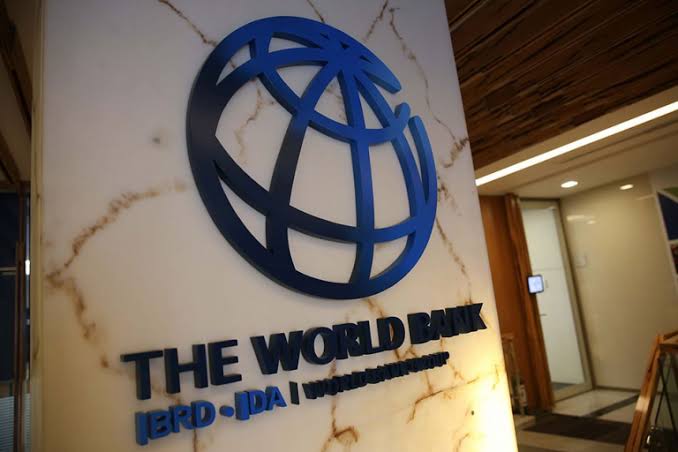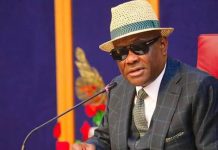Nigeria’s barely 0.14 per cent budgetary allocation of its Gross Domestic Product on social protection is far below the global average of 1.5 per cent and the Sub-Saharan African average of 1.1 per cent, and has had no effect on poverty, so far.
The World Bank, in a new report titled “The State of Social Safety Nets in Nigeria”, obtained on Tuesday, noted that the tiny allocation, which is a combined effect of all existing social protection programmes in the country, the bank warned, has reduced the national poverty headcount by just 0.4 percentage points.
The country’s budgetary allocation to social protection has been low as a percentage of its GDP, averaging around 0.45 per cent between 2010 and 2021, according to ILO data.
While specific recent figures vary, data from 2019 showed it at 0.7 per cent of GDP (excluding health), which is significantly lower than regional averages and other countries. Furthermore, actual spending has often been lower than budgeted amounts.
To put it simply, despite government claims of multiple intervention schemes, from conditional cash transfers to school feeding programmes, the needle on poverty has barely moved. The report blames the weak impact on poor design and benefit dilution.
While some programmes, like the National Social Safety Nets Programme, disburse a flat amount per household, poorer households are typically larger, meaning the money is stretched among more mouths.
For instance, a family of eight in a rural village and a family of three in a semi-urban area may receive the same transfer, even though the former faces deeper hardship.
Other schemes, like the National Home-Grown School Feeding Programme, which feeds primary school pupils, target individuals instead of households. Yet, they reach only children in grades one to three and cover a limited number of schools.
The World Bank also expressed concern over Nigeria’s heavy dependence on foreign donors to finance its social safety nets. Between 2015 and 2021, official development assistance accounted for about 60 per cent of federal spending on safety-net programmes, with the World Bank providing over 90 per cent of that support.
The report cautioned that this dependence puts Nigeria at risk of funding gaps whenever donor support declines. “There is an urgent need for Nigeria to find fiscal space for sustainable social safety-net programming,” the bank warned.
“At the existing level of social protection expenditure, there is almost no impact on the overall poverty headcount rate, gap, or depth. The impact on the poverty headcount rate of all social safety net expenditure combined is just 0.4 percentage points. The minimal impact is explained, first and foremost, by the low coverage of and low expenditures on safety net programmes.
“In addition, the inadequacy of benefit levels, particularly of the programs with the largest coverage, limits the ability of these programs to lift many out of poverty. Many programs implemented by the federal, state, and local levels, as well as safety net programs implemented by religious bodies, fail to reach the neediest. The low coverage, together with low benefit size and poor targeting, contribute to the negligible impacts of extant safety nets on the overall poverty headcount rate in Nigeria.
“It is, therefore, not surprising that the poverty impacts of safety net programs in Nigeria are much lower than in most other LMICs. The range of poverty impacts in Nigeria is even lower than the average among not just the LMICs, but also low-income countries with lower incomes and a higher extent of poverty.
“Likewise, the overall impact on inequality among the poor also remains low. The extant safety net programmes lower the poverty gap, the income needed to lift everyone to the poverty line (expressed as a percentage of the poverty line), by 0.2 percentage points and the overall depth of poverty by 0.15 percentage points.”
Furthermore, the bank stated that the poorest households in Nigeria are larger, which leads to the benefit being spread thinly among many family members. This further contributes to the negligible impacts on reducing inequality among the poor, as measured by the gap and severity of poverty.
“That being said, if well-targeted programmes are scaled up, then the poverty impacts can be significantly higher. For instance, the NASSP cash transfer programme has a much larger effect on poverty and inequality of its beneficiaries,” it stated.
The bank, however, acknowledged that the National Social Safety Nets Programme, which uses the National Social Registry to identify and reach poor households, has shown encouraging results.
Among its beneficiaries, the programme reduced poverty by 4.3 percentage points and the poverty gap by 4.2 percentage points, nearly 10 times more effective than the combined impact of all other social safety-net initiatives.
With more than 85 million individuals already captured in the NSR, the database, now the largest in Sub-Saharan Africa, offers what the bank calls “a ready-made platform” for more accurate and transparent delivery of social assistance.
Despite billions of naira spent yearly to cushion hardship, the report said Nigeria’s social safety-net programmes are failing to reach those who need them the most.
The bank revealed that only 44 per cent of total benefits from government-funded safety-net schemes actually reach poor Nigerians.
The November 2025 report examines Nigeria’s spending on social safety nets, assessing their coverage and efficiency, and reveals how poor targeting, weak funding, and fragmented implementation have left millions of vulnerable citizens without meaningful relief despite the government’s lofty poverty-reduction promises.
-Advertisement-
Grab our latest Magazine, "Chief Wole Olanipekun, CFR, SAN, A man of wide horizons and deep intentions". Get your order fast and stress free.
For more details about Newswire Law&Events Magazine, kindly reach out to us on 08039218044, 09070309355. Email: newswiremagazine@yahoo.co.uk. You will be glad you did
Download E-MagazineDo you want to be heard, your events covered, your articles published, or need to advertise your products and services on our Blog and Magazine, reach out to us at Newswire Law and Events, you will be glad you did. For more details about our services, please call: 08039218044, 09070309355. Email: newswiremagazine@yahoo.co.uk







